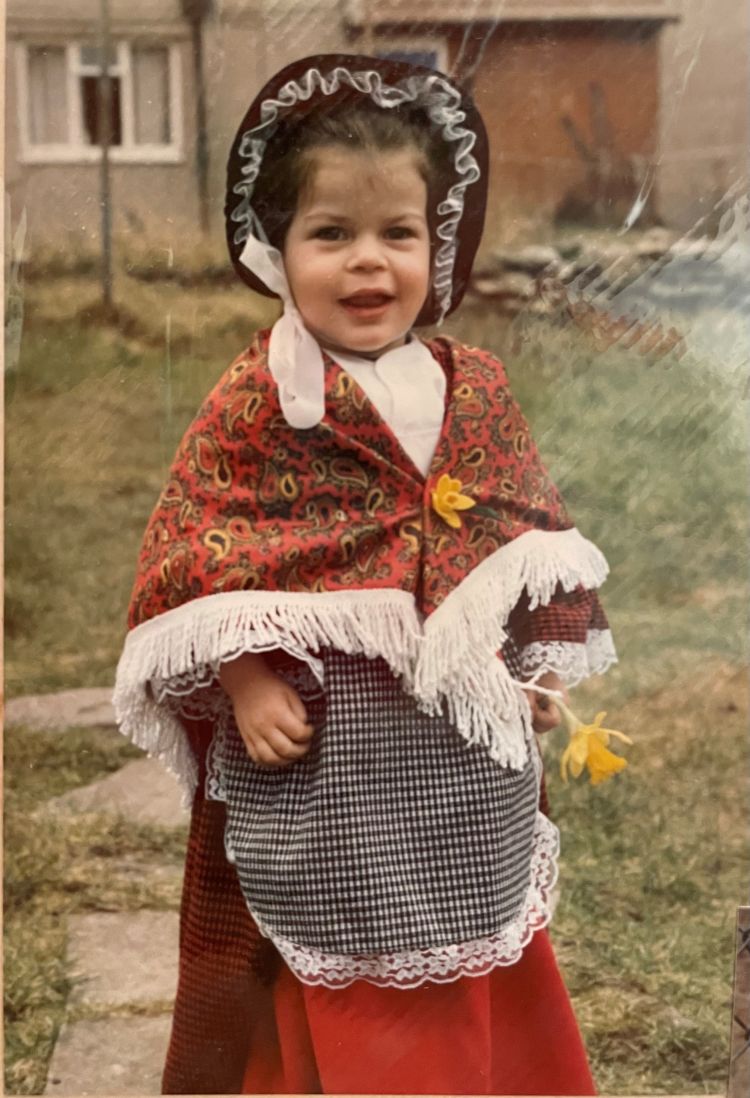Dismantling my language barrier through workplace learning
My infant school was an old Victorian building that had been divided into two. As the English-speaking children played in their yard, and the children from the Welsh language school played in their side, we were aware of how we could see each other but we were separated. It formed my earliest experiences of being separated by a language barrier.
I come from a working-class family in the Rhondda Valley. My father had started working in Maerdy colliery at the age of 15 and had never been taught the language. By that I mean that the language was deliberately never passed on. His grandparents, both fluent Welsh speakers from West Wales, made a deliberate choice that having the language would be a detriment to my father in his work.
It was a decision made in love, for a grandson they wanted to protect. The persecution of Welsh language speakers was tough to watch, so it was easier to help your children conform.
My mother has a similar story of coming from a mining family. But although her Devonian grandfather is listed as a Welsh speaker in the 1911 census, the language was never passed on.
And yet, the Welsh language has always been part of my life.
A childhood peppered with Welsh

In those early infant school memories, I remember learning the Lord’s prayer in Welsh and I was genuinely confused when I had to say it in English in my junior school.
My speech has always been influenced by the Welsh language, both in structure and content. Being from the Valleys, I ‘talk tidy’ and, for me, a spring onion will always be a ‘gibbon’ (pronounced ‘jibon’, and coming from the Welsh ‘shibwns’). You can have a ‘swil in the bosh’ (a wash in the sink); and the ’gwli’ is a little lane between the terraced houses I’ve grown up in.
One branch of my family lives in Aberystwyth, and my aunty was a Welsh language activist. It was her who took me to my first ‘eisteddfod’ as a child and made the Welsh language more accessible for me.
Yet I’ve never really felt that I fully belong to this community because I didn’t speak the language, so adulthood has been a chance to repair a fractured relationship with this.
Changing my relationship with Welsh through workplace learning
Work became a pivotal place for my relationship with the Welsh language. The Wales TUC paid for me to attend a course at Cardiff university and I then listened to the ‘Say Something in Welsh’ lessons - a format I found really useful.
With more of a focus on the Welsh language and the Welsh Government introducing the ‘Cymraeg 2050’ policy and the goal of reaching one million Welsh speakers by 2050, I felt that the language was going to become more important in future jobs.
So, it influenced my choices about schooling for my children. Plus the Welsh language baby groups were free (which is always a help when you’re on maternity leave). I attended a ‘Ti a Fi’ community group which took place in the school’s community room. This gave me an insight into the culture of the local Welsh language school.
Please speak with me in Welsh
These days, I understand the Welsh language quite well. I’ve taken lessons and because both of my young children speak Welsh, I’ve tried to make sure that I am able to understand what’s going on. Something which was definitely tested during the Covid home-schooling periods.
That said, my confidence and speaking ability has always lagged behind my understanding, so I’m always grateful when others will practice with me and won’t be put off by my poor-quality replies. I generally understand what’s being said to me, even if I don’t reply in a similar fashion.
When I’ve reflected on my experiences of the Welsh language, like many other things in my life, it’s been influenced by a collective. It takes a community to make changes and it takes us all working together to make the Welsh language accessible and inclusive to everyone in Wales. It’s something we can all take ownership of, even if we don’t speak or understand the language …….. yet.
Tro nesaf ….. siaradwch gyda fi yn Gymraeg!!
You can learn Welsh in the workplace too.
There are a number of ways you can learn Welsh in the workplace such as Dysgu Cymraeg and Say Something in Welsh. You may also be able to learn Welsh using the Wales Union Learning Fund (WULF) whether you’re a member of a union or not – contact the union in your workplace to find out more.
